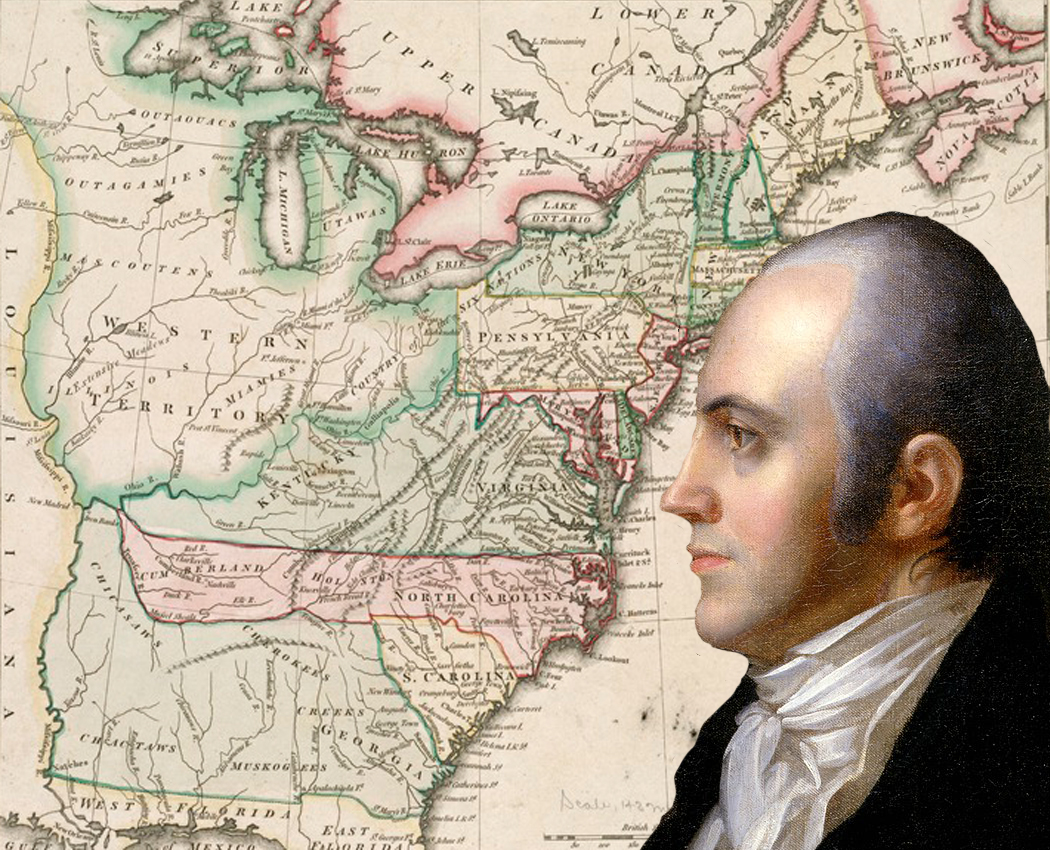Aaron Burr, Vice President under Thomas Jefferson, found himself facing the charge of treason on February 19, 1807. These charges stemmed from an alleged conspiracy that claimed Burr had been attempting to amass a group of powerful and influential businessmen, politicians, farmers, and military men together to establish a new nation. His alleged plan was to break the Southwestern United States away from the Union, with plans to claim Mexican territory for themselves as well.
Although Burr’s true intent remains unknown, several key facts are not in dispute. Chief among them was that Burr had amassed a small army and stockpiled supplies on the Blennerhassett Island. The crux of the accusations against him, however, had come from an associate Burr helped rise to the position of Governor of the Louisiana Territory, General James Wilkinson. In late 1806 Wilkinson arrested supposed co-conspirators and levied charges against them. Wilkinson later sent Jefferson a cipher he claimed to be written by Burr, detailing a plan to attack New Orleans and launch skirmishes against Mexico. Jefferson, who already held little trust in his former Vice President, put out a warrant for Burr’s arrest.
Burr and his men first learned of these charges in Bayou Pierre on their way to New Orleans. He surrendered himself to the authorities but escaped shortly after charges were brought against him. Burr was captured again for the final time on February 19 of 1807.
The trial was long and arduous, and the stakes were life and death. But it ended in acquittal for Burr, as Justice John Marshall determined he had not committed the crime as outlined by the constitution. While his victory in court may have kept him alive in the strictest sense, his political life was over. The accusations had destroyed his public image, and he would go on to live the rest of his life out of the public eye, working as an attorney.

